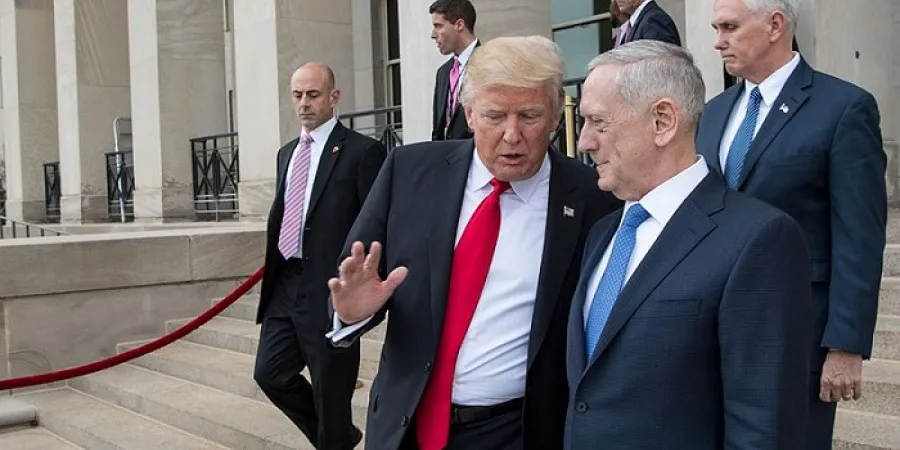The US Interested in Regime Change in Iran
Ami Rojkes Dombe
| 13/07/2017
Regime change will be necessary before the US and Iran can have substantially positive relations, according to Secretary of Defense James Mattis.
"Until the Iranian people can get rid of this theocracy, these guys who think they can tell the people even which candidates they get a choice of. It’s going to be very, very difficult," Mattis told the Mercer Island High School Islander.
Improving relations with Iran will be particularly difficult, according to Mattis. He noted that any potential rapprochement would be difficult because Iran is not really a democracy.
Mattis noted that the Iranian regime was his "biggest problem" while he commanded US Central Command. The former has had no qualms about confronting the Iranian regime in the past, having once pursued a retaliatory strike on the country after it supplied rockets to Iraqi insurgents fighting US troops in 2011, killing several. Mattis’ strike never happened, as his proposal was shot down by the Obama administration.
Today, he said everyone in the Middle East, from Tel Aviv to Cairo, has told him Iran continues to be a major problem. He added that the country’s malign influence has helped keep Syria’s dictator, Bashar al-Assad, in power, has escalated the conflict in Yemen by supplying ballistic missiles to Houthi rebels and continues to murder its own people.
"The Iranian people are not the problem," said Mattis."The Iranian people are definitely not the problem, it’s the regime that sends agents around to murder ambassadors in Pakistan or in Washington DC It’s the regime that provides missiles to Lebanese Hezbollah or the Houthi in Yemen."
[Source: The Daily Caller]
Regime change will be necessary before the US and Iran can have substantially positive relations, according to Secretary of Defense James Mattis.
"Until the Iranian people can get rid of this theocracy, these guys who think they can tell the people even which candidates they get a choice of. It’s going to be very, very difficult," Mattis told the Mercer Island High School Islander.
Improving relations with Iran will be particularly difficult, according to Mattis. He noted that any potential rapprochement would be difficult because Iran is not really a democracy.
Mattis noted that the Iranian regime was his "biggest problem" while he commanded US Central Command. The former has had no qualms about confronting the Iranian regime in the past, having once pursued a retaliatory strike on the country after it supplied rockets to Iraqi insurgents fighting US troops in 2011, killing several. Mattis’ strike never happened, as his proposal was shot down by the Obama administration.
Today, he said everyone in the Middle East, from Tel Aviv to Cairo, has told him Iran continues to be a major problem. He added that the country’s malign influence has helped keep Syria’s dictator, Bashar al-Assad, in power, has escalated the conflict in Yemen by supplying ballistic missiles to Houthi rebels and continues to murder its own people.
"The Iranian people are not the problem," said Mattis."The Iranian people are definitely not the problem, it’s the regime that sends agents around to murder ambassadors in Pakistan or in Washington DC It’s the regime that provides missiles to Lebanese Hezbollah or the Houthi in Yemen."
[Source: The Daily Caller]



